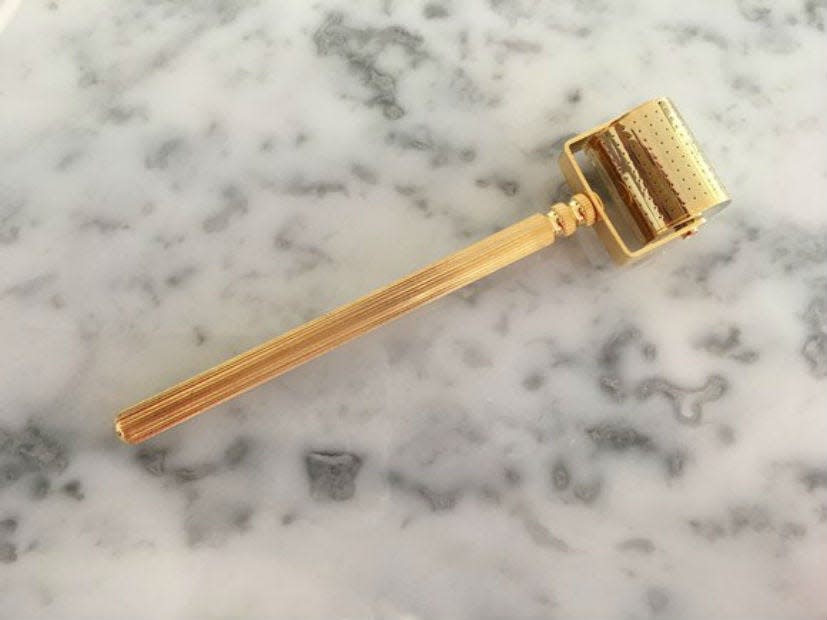Minoxidil may be in short supply. Here are 5 other hair loss treatments you can use instead.

There may be a shortage of hair loss treatment minoxidil, also known as Rogaine, in the US right now.
Other medications and supplements may be used to prevent hair thinning.
A dermatologist recommended 5 alternatives to try, including rosemary oil.
The US may be experiencing a shortage of popular hair loss treatment minoxidil, also known as Rogaine, according to new research.
That means people who are dependent on the oral version of the medication might start to lose the hair they've regrown, research author Adam Friedman, professor and chair of dermatology at George Washington University, told NBC News.
While minoxidil is widely considered to be the best product for hair growth, there are other options out there, from prescription medications to essential oils.
Trying new alternatives, especially natural products, can involve some trial and error, according to Dr. Brendan Camp, a dermatologist practicing in New York.
Still, if you're affected by the Rogaine shortage, it could be worth trying to switch medications or opting for a high-quality supplement instead. Here are five options to try.
Finasteride

Aside from minoxidil, Camp said that finasteride, also known by its brand name Propecia, is the other leading prescription medication to treat thinning hair.
He noted that it's meant for male patients, as it can cause birth defects in pre-menopausal women.
Rosemary oil

Rosemary oil is immensely popular on social media as a hair growth supplement.
A small 2015 study involving 100 men found it to be effective in stimulating hair growth in the follicle. According to the study, massaging it into the scalp weekly could help regrow hair over 3-6 months.
While the study only involved men, some women have also reported successfully using rosemary oil to treat hair loss.
Saw palmetto

Camp said that saw palmetto, an extract from a tree of the same name, is "thought to block the activity of an enzyme that converts testosterone to DHT, the hormone that causes hair loss."
It's considered one of the best oils for treating thinning hair, though more high-quality studies are needed to compare its effectiveness to the leading hair growth medications.
Camp cautioned, however, that because supplements and oils are not FDA-regulated, "the purity may vary from product to product."
Spironolactone

For female patients experiencing hair loss, Camp said that spironolactone — a blood pressure medication commonly prescribed to treat hormonal acne — can also help with thinning hair.
Camp said that androgens are hormones that contribute to hair loss. Spironolactone works by interfering with androgen signaling, thereby reducing hair loss.
Men can take spironolactone, but may have some undesirable side effects including gynecomastia, or breast tissue growth, and erectile dysfunction. For this reason, many men don't take spironolactone.
Microneedling

Some TikTokers swear by microneedling, which you can try at home, to prevent hair loss.
Camp said that "at-home microneedling kits may stimulate blood circulation on the scalp," which can improve oxygenation on the scalp skin.
It may also protect hair follicles from oxidative stress caused by free radicals, which can damage cells and contribute to premature aging, according to Camp. So microneedling can potentially preserve hair follicles and reduce hair loss.
Read the original article on Insider


